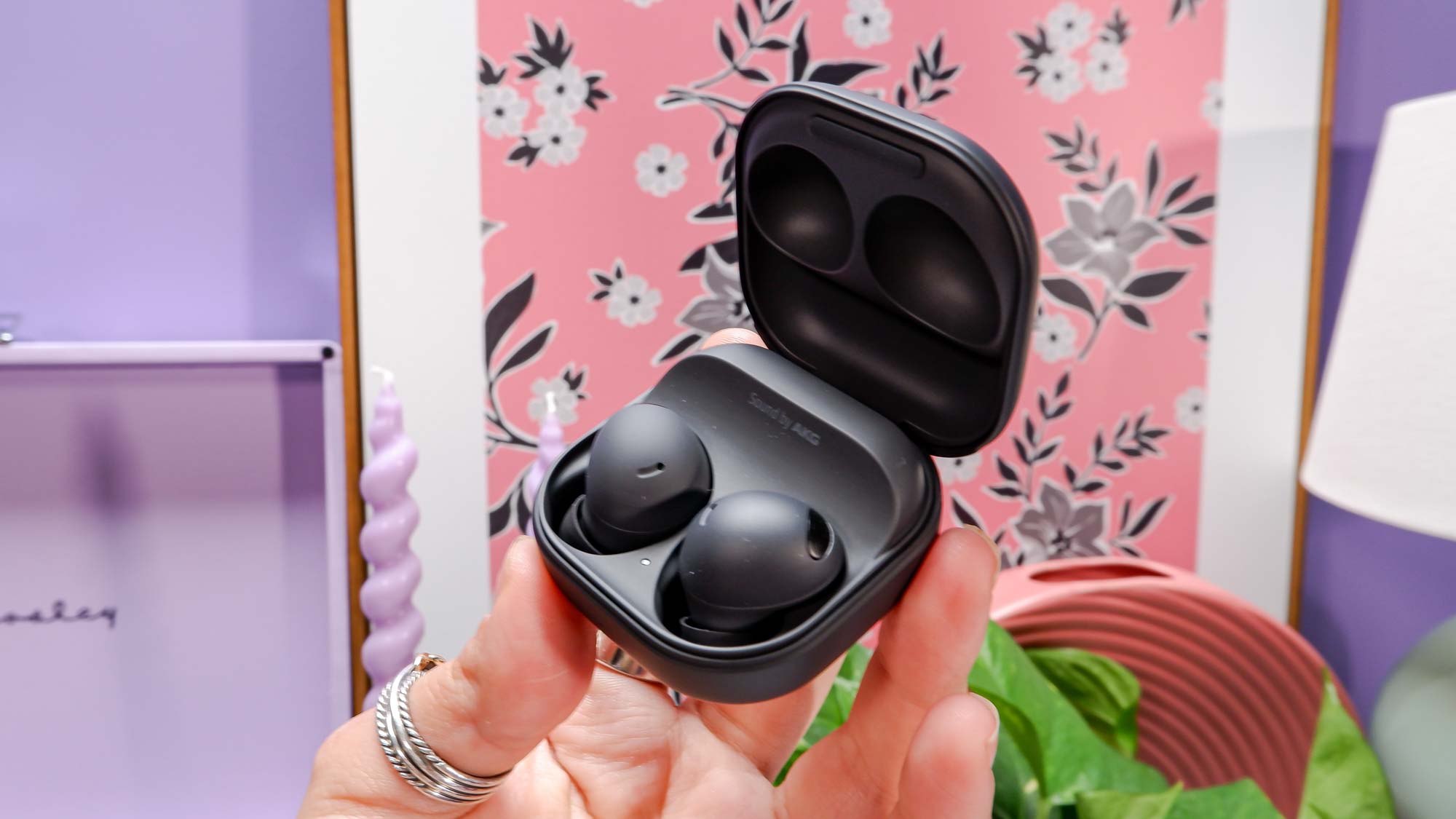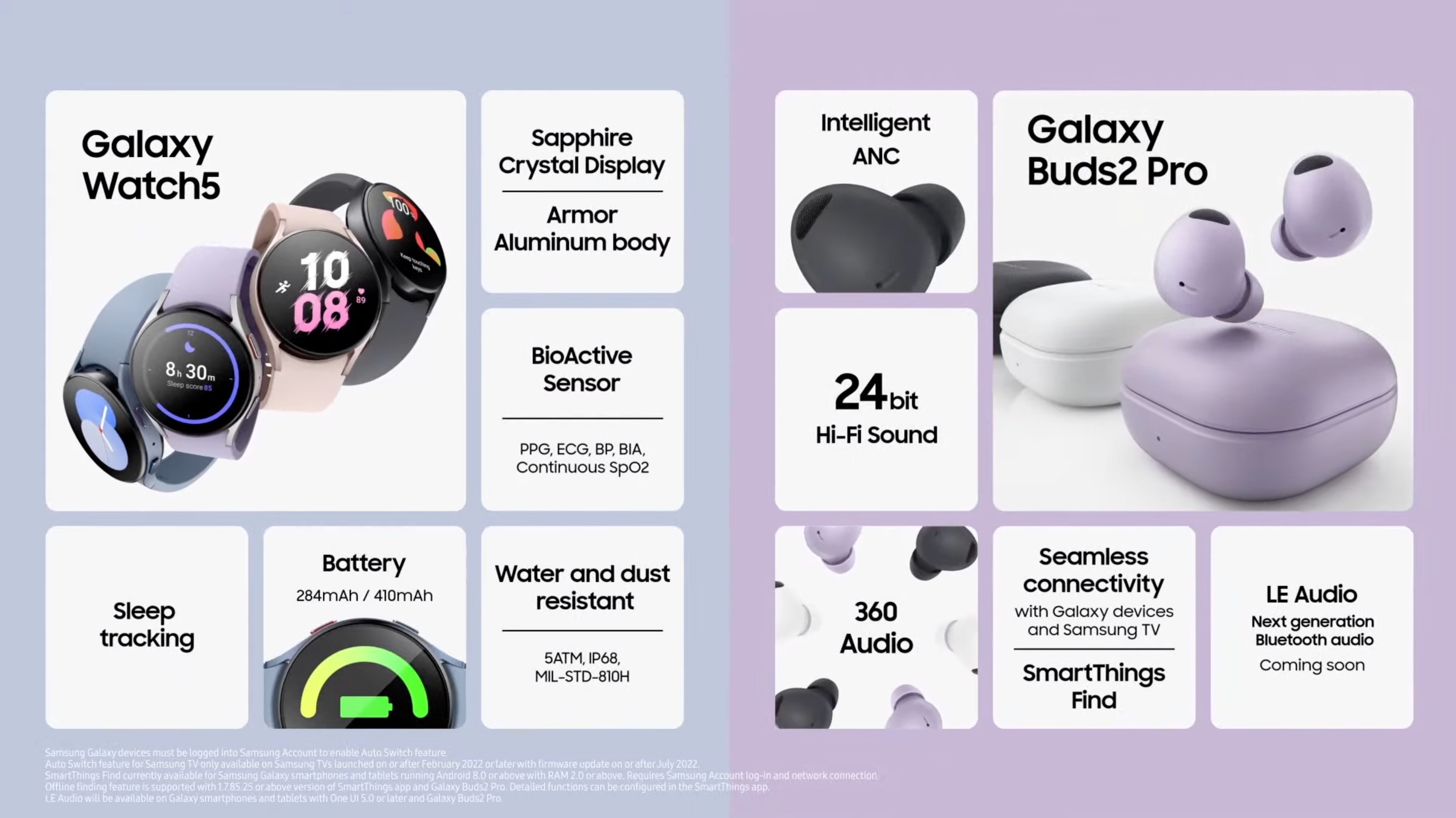Samsung Galaxy Buds 2 Pro — what the heck does 24-bit sound mean?
The Samsung Galaxy Buds 2 Pro claim "24-bit Hi-Fi Sound"

While many on Tom's Guide agree that the biggest news to come out of the Samsung Unpacked event earlier this week was the announcement of the next-gen ANC earbuds with the Galaxy Buds 2 Pro, it is the "24-bit Hi-Fi Sound" headline feature that has me most excited, as well as a little intrigued.
Although I've yet to get my hands on a pair of Samsung's flagship earbuds for a full review, the consumer tech giant hasn't provided clarification on what it means by the 24-bit Hi-Fi Sound claim, stating: "[24-bit audio] offers high-dynamic range helping you feel connected to the content you’re listening to with crystal-clear resolution."
On the face of it, this sounds like a significant audio advancement, but as I understand it, whether audio is handled at 16- or 24-bit is only part of the story.
State of confusion
In recent years, tech has made major advances in the way digital audio is delivered and the high quality content we can access. For example, you can now stream genuine studio masters (Hi-Res) of your favorite artist(s) over a home broadband network via music streaming services such as Qobuz and Tidal. To truly experience hi-res streams without any compromises being made to the signal along the audio chain, though, you're going to need something more than a Bluetooth wireless connection, even if it's a brand new pair of Galaxy Buds 2 Pro earbuds teasing high quality audio capabilities.
There's plenty of confusion about what qualifies as hi-res audio. A lack of consumer understanding over what is "CD-quality sound" or "hi-res audio" actually means it's easy for tech marketeers to include bold claims on the audio capabilities to add perceived value to a product's specifications, but it doesn't tell the full story.

Misleading claims
By saying the Samsung Galaxy Buds 2 Pro have "24-bit Hi-Fi Sound" really only adds to consumer confusion. Terms like “Hi-Res” and "24-bit Studio Quality” are often banded around to demonstrate the audio capabilities of a particular product, and are often applied incorrectly. What we really need to know is the codecs being supported to understand the data rates before we can determine whether a product's audio quality capabilities will deliver CD-quality, or better-than-CD-quality audio when discussing claims like "24-bit Hi-Fi Sound".
While codecs — the format in which audio file data is encoded, transmitted and decoded — sound awfully boring, they play a vitally important role in how digital audio files are handled and the quality it is delivered at.
Samsung has mentioned higher bit rates before with its Scalable Codec offering data transmissions from 88kbps to 512kbps — which is similar to aptX Adaptive (279kbps to 420kbps) — but only compatible with Samsung devices. For a bit of perspective, Sony's LDAC codec achieves 990kbps, which is currently the closest to CD-quality audio delivered at 1,411kbps from a dedicated player or streamed over Wi-Fi. Bluetooth cannot handle the full CD data rate, but a new aptX Lossless Audio codec claims it will be able to deliver 16-bit/44.1kHz CD-quality when it arrives on devices and earbuds later this year.
Without being able to experience the earbuds in the flesh for myself, it seems that any audio benefits gained by 24-bit audio will likely be overshadowed by the type of audio compression used to shrink the size of a music file so that it can be wirelessly transmitted to the earbuds from a playback device over Bluetooth.
Samsung hasn't mentioned supporting aptX Lossless Audio codec, and I'm genuinely doubtful of the benefits its 24-bit audio claims will bring. Without being able to experience the earbuds in the flesh for myself, it seems that any audio benefits gained by 24-bit audio will likely be overshadowed by the type of audio compression used to shrink the size of a music file so that it can be wirelessly transmitted to the earbuds from a playback device over Bluetooth. This will have a far greater impact on sound quality than the digital-to-analog convertor (DAC) in Samsung's earbuds handling audio signal at either 16-bit or 24-bit.
I'm not saying that the audio quality from Samsung's flagship earbuds won’t be good, just that there are a lot of factors to take into consideration when highlighting audio quality over Bluetooth connectivity. I'm yet to hear them for myself, and in the meantime there are a plenty of details to pick over while I wait to get my hands on.
Either way though, with a new aptX Lossless Audio codec on the horizon looking like the holy grail for high-quality audio over Bluetooth, Samsung is already looking late to the party, no matter how it dresses up its audio credentials.
Next: read the full Samsung Galaxy Buds 2 Pro review.
Sign up to get the BEST of Tom's Guide direct to your inbox.
Get instant access to breaking news, the hottest reviews, great deals and helpful tips.

After 2.5 years as Tom's Guide's audio editor, Lee has joined the passionate audio experts at audiograde.uk where he writes about luxury audio and Hi-Fi. As a former editor of the U.K.'s Hi-Fi Choice magazine, Lee is passionate about all kinds of audio tech and has been providing sound advice to enable consumers to make informed buying decisions since he joined Which? magazine as a product tester in the 1990s. Lee covers all things audio for Tom's Guide, including headphones, wireless speakers and soundbars and loves to connect and share the mindfulness benefits that listening to music in the very best quality can bring.
-
nonanonymous Hi. I've tried the Galaxy Buds Pro 2, and their sound is out of this world. 24bit HiFi sound through bluetooth speakers is real, and it's delicious. In the past your website has had trusted reviews. I love hi end audio, and these buds are the first mass produced, mass adopted hi end audio products to date. This is the future of audio. And I believe it's where your website should dig into - at least on the audio side. I'd love for you all to start that conversation now and get ahead of it. Once other big bands get on this technology, it will be what everyone will be talking about - I promise you. It will also create a chain reaction of other products and services to support it, and compete with it. I'd love to read more about this stuff first from a trusted website like this one. Cheers.Reply
